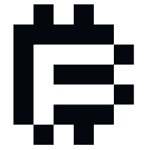Staking
| Projects | Projects | Status | Date start | Raised | Launchpad | Ecosystem | X score | Interest lvl | Industry | |||
|---|---|---|---|---|---|---|---|---|---|---|---|---|
ICO Ongoing | Oct 03, 2025 | $2,39M | Finance +9 | |||||||||
| TBA | AI +3 | |||||||||||
IDO Past | Nov 25, 2025 | $3M | DeFi +3 | |||||||||
IEO Past | Oct 20, 2025 | $20M | Web 3.0 +2 | |||||||||
IEO Past | Oct 21, 2025 | $5M | Staking +1 | |||||||||
ICO Past | Sep 12, 2025 | Protocol +1 | ||||||||||
IDO Past | Oct 01, 2025 | Exchanges & Wallets +2 | ||||||||||
IEO IDO Past | Oct 17, 2025 | $5M | Multi-Chain Platform +3 | |||||||||
IDO Past | Nov 03, 2025 | DeFi +4 | ||||||||||
IDO Past | Aug 26, 2025 | $16M | DeFi +2 | |||||||||
IDO Past | Aug 11, 2025 | DeFi +2 | ||||||||||
ICO | TBA | Gaming +6 | ||||||||||
ICO | TBA | Finance +5 | ||||||||||
| TBA | DeFi +2 | |||||||||||
| TBA | Mining +4 | |||||||||||
| TBA | $21,2M | Finance +5 | ||||||||||
IDO | TBA | Multi-Chain Platform +4 | ||||||||||
| TBA | $1,25M | Blockchain +4 | ||||||||||
IEO Past | May 02, 2025 | DeFi +4 | ||||||||||
IDO Past | Apr 29, 2025 | $6M | DeFi +1 | |||||||||
IEO Past | Apr 24, 2025 | $6M | Blockchain +7 | |||||||||
| TBA | $140M | AI +2 | ||||||||||
| TBA | $5,2M | AI +5 | ||||||||||
IEO Past | Feb 08, 2025 | DeFi +1 | ||||||||||
| TBA | Blockchain +3 | |||||||||||
IDO Past | Jan 21, 2025 | DeFi +3 | ||||||||||
ICO Past | Jan 16, 2025 | $12M | DeFi +2 | |||||||||
| TBA | $102,75M | Crowdfunding & Lending +5 | ||||||||||
| TBA | Blockchain +4 | |||||||||||
IDO Past | Jan 08, 2025 | $6,7M | DeFi +2 | |||||||||
IDO Past | Mar 17, 2025 | Exchanges & Wallets +5 | ||||||||||
ICO Past | Nov 21, 2024 | $2M | Exchanges & Wallets +2 | |||||||||
ICO | Nov 08, 2024 | Blockchain +5 | ||||||||||
IDO Past | Dec 13, 2024 | DeFi +4 | ||||||||||
| TBA | $10M | Blockchain +4 | ||||||||||
ICO Past | Dec 03, 2024 | DeFi +2 | ||||||||||
IDO Past | Nov 30, 2024 | Crowdfunding & Lending +5 | ||||||||||
IDO IEO Past | Nov 13, 2024 | Blockchain +4 | ||||||||||
IEO Past | Nov 07, 2024 | DeFi +3 | ||||||||||
| TBA | $15,8M | Blockchain +3 | ||||||||||
| TBA | $3,9M | Crowdfunding & Lending +4 | ||||||||||
| TBA | Blockchain +4 | |||||||||||
| TBA | $1,7M | Finance +2 | ||||||||||
IDO IEO Past | Mar 13, 2025 | $3M | Staking | |||||||||
IDO Past | Oct 07, 2024 | DeFi +3 | ||||||||||
IDO IEO Past | Aug 17, 2024 | $2,5M | Multi-Chain Platform +3 | |||||||||
| TBA | Trading & Investing +4 | |||||||||||
| TBA | DeFi +1 | |||||||||||
IDO Past | Sep 12, 2024 | DeFi +1 | ||||||||||
IDO | Nov 11, 2024 | Crowdfunding & Lending +4 | ||||||||||
What is Staking
Staking is a type of passive income from cryptocurrency operating on the basis of the Proof-of-Stake algorithm. In the framework of the method, a part of coins is frozen in the user’s wallet so that it is possible to ensure the operability of the currency directly or through intermediary services.
The process of staking involves blocking crypto-assets for a certain period of time. Validators are responsible for validating transactions on the blockchain network where the funds are hosted. Validators are also rewarded in the form of new cryptocurrency for placing cryptocurrency on the stake.
In general, cryptocurrency staking can be compared to making a deposit to a bank at high rates of interest. In turn, the bank uses the deposited funds of customers to issue loans, and those who placed the deposit receive interest on the account balance.
Notably, many blockchains use the staking mechanism as the main consensus (PoS) algorithm, ensuring the reliable operation of the entire ecosystem. For example, Ethereum, Cosmos, Aptos, Solana and others.
How does it work
In a blockchain structure where Proof-of-Stake is involved, those who wish to support the blockchain confirm new transactions, effectively adding new blocks, while placing a certain amount of cryptocurrency in the stake. This is exactly what the network participant is rewarded for.
Staking process ensures that only authentic data is added to the blockchain. Once funds are staked and thus can validate new transactions, the blocked assets of a network participant are used as insurance, among other things. If poor quality or deliberately misrepresented data is brought into the network, it is possible to lose funds in staking. But if the data is correctly validated by the validating participant, he will receive more cryptocurrency as a reward.
One should also keep in mind that token staking requires a certain amount of funds. For example, to participate in Ethereum staking, each validator must have at least 32 ETH locked. At the same time, the amount of funds on different blockchains and cryptocurrency exchanges may be lower.
There are intermediary services in the form of crypto exchanges or staking pools, whose operators take on the job of verifying transactions on the blockchain in the validator status. The user of such a service can place any amount of money in a staking pool without restrictions and receive income in proportion to the invested funds. In this case, he does not need to deal with the technical side on his own, and the interface of pools or staking services on exchanges is usually simple and accessible even for a beginner.
You can also use a cryptocurrency wallet that supports the staking function. In this case, the infrastructure of the wallet actually fulfills the same role as staking services.
Many large pools (e.g., Lido or RocketPool) provide a so-called liquid staking service. This means that when you place funds in a staking pool, you receive a corresponding number of derivative tokens, which can also be used in various financial transactions to generate income. For example, when participating in Ethereum staking via Lido service, a user blocks his ETH coins in it, but immediately receives a derivative token – stETH, which can be used in other projects. In this way, he simultaneously continues to receive income from ETH through the pool and has the opportunity to use the same amount of funds he blocked (only in derivative tokens).
Key advantages of Crypto Staking
Based on the above, it can be argued that cryptostaking offers a number of benefits:
- Passive income. At the same time, higher, relative to mining through Proof-of-Work.
- Availability, thanks to exchanges and crypto wallets.
- Airdrop bonuses. At the beginning of 2024, there is a trend among crypto project developers to reward with their own tokens those who participate in staking on the blockchain where the project is built. For example, in Celestia or Solana.
- Significant reduction in the potential cost of buying equipment, as in the case of mining.
- A higher level of security, as staking allows you to avoid 51% attacks.
However, it is worth noting that there are some disadvantages:
- Access to funds that will actually be locked up for a certain period of time.
- A sharp decline in the price exchange rate.
- Slash mechanism can be a potential threat of losing funds due to the fault of an unscrupulous validator to whom the user entrusted funds to the pool. The probability of such an outcome is extremely low.
- Concentration on one validator. For example, the Lido service accounts for more than 30% of the total volume of stake in Ethereum. In theory, such large validators can manipulate the network or censor transactions in it.
Conclusion
Staking is investing in the development and protection of cryptocurrency with the opportunity to get bonus coins. Unlike mining, this type of activity does not require spending on expensive equipment and allows you not to study technical nuances. In staking, the profitability depends on the chosen currency and on the working conditions – with a fixed period of asset freezing or with indefinite conditions.

















































